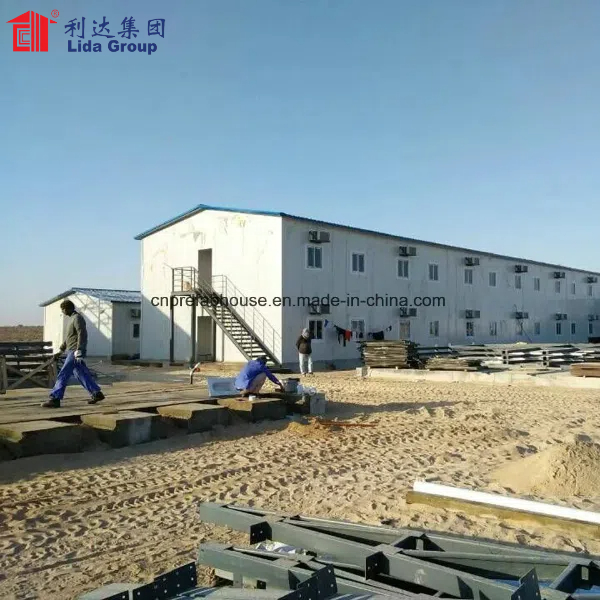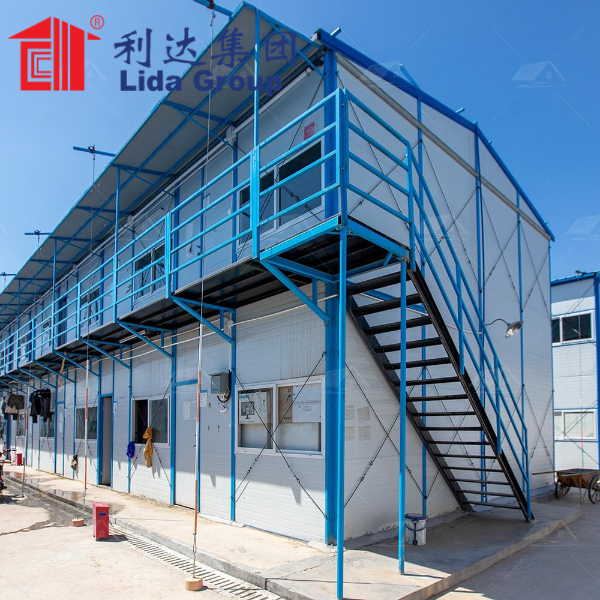In recent years, the housing market has undergone a significant transformation, driven by the need for affordability, speed, and sustainability. Prefabricated houses, commonly known as prefab houses, have emerged as a viable solution to these challenges. Among the leaders in this innovative sector is Lida Group, which offers modular housing solutions that redefine traditional construction methods. This article explores the rise of prefab houses, the advantages they offer, and how Lida Group is at the forefront of this revolution.
Understanding Prefabricated Houses
What Are Prefabricated Houses?
Prefab houses are structures that are manufactured off-site in a factory setting before being transported to the construction site for assembly. This method contrasts with traditional construction, where homes are built entirely on-site. The prefabrication process allows for various components—such as walls, floors, and roofs—to be produced in a controlled environment, ensuring high-quality standards and minimizing waste.
Types of Prefab Houses
- Modular Homes: These homes are built in sections or modules that are transported to the site and assembled. They often include both structural and non-structural components, allowing for comprehensive customization.
- Panelized Homes: In this approach, panels are pre-made and shipped to the site, where they are assembled into a complete structure. This method is particularly popular for walls and roofs.
- Pre-cut Homes: These homes consist of components that are cut to size and shipped to the site. Builders then assemble the pieces according to the provided instructions.
- Container Homes: Using repurposed shipping containers, these homes offer a unique aesthetic and can be easily transported. Lida Group specializes in innovative designs that maximize the use of container homes.
The Benefits of Prefabricated Houses
1. Speed of Construction
One of the primary advantages of prefab houses is the speed of construction. Since many components are manufactured off-site, the time spent on-site is significantly reduced. Lida Group’s modular solutions allow for homes to be constructed in weeks rather than months, enabling homeowners to move in sooner.
2. Cost-Effectiveness
Prefab houses can be more cost-effective than traditional homes. The streamlined manufacturing process reduces labor costs, and the efficiency of building in a factory setting minimizes waste. Lida Group’s focus on affordability ensures that modular homes are accessible to a broader range of buyers.
3. Quality Control
The controlled environment of a factory allows for rigorous quality control measures. Every component of prefab houses is subject to strict inspection and testing, ensuring that they meet high standards of safety and durability. Lida Group is committed to delivering high-quality modular solutions that stand the test of time.
4. Sustainability
Prefab houses often have a lower environmental impact than traditional homes. The efficiency of the manufacturing process reduces waste, and many companies, including Lida Group, utilize sustainable materials. Additionally, prefab homes can be designed for energy efficiency, incorporating features such as insulation, energy-efficient windows, and renewable energy systems.
5. Customization
Lida Group offers extensive customization options for its prefab houses. Homeowners can choose layouts, finishes, and features that reflect their personal style and functional needs. This flexibility allows for the creation of unique living spaces tailored to individual preferences.
6. Versatility
Prefab houses are versatile and can serve various purposes. Whether used as primary residences, vacation homes, or temporary housing solutions, modular homes can be adapted to meet diverse needs. Lida Group’s designs can accommodate residential, commercial, and industrial applications.
Lida Group’s Modular Solutions
1. Innovative Design
Lida Group is at the forefront of the prefab housing revolution, offering innovative designs that maximize space and functionality. Their modular solutions incorporate modern aesthetics while ensuring practicality. The design process involves collaboration with clients to create homes that meet their specific requirements.
2. Efficient Manufacturing Process
Lida Group utilizes advanced manufacturing techniques to produce its prefab houses. The company employs skilled workers and state-of-the-art equipment to ensure precision and quality in every component. This efficiency contributes to the rapid construction timeline that Lida Group is known for.
3. Comprehensive Services
Beyond construction, Lida Group provides a full range of services to support clients throughout the entire process. This includes site evaluation, project management, and post-construction support. The company’s commitment to customer satisfaction ensures a seamless experience from start to finish.
4. Focus on Sustainability
Lida Group is dedicated to sustainable practices in its modular solutions. The company prioritizes the use of eco-friendly materials and energy-efficient systems in its designs. Additionally, Lida Group actively seeks to minimize waste during the manufacturing process, contributing to a more sustainable construction industry.
5. Global Reach
Lida Group has established a global presence, delivering prefab housing solutions to various markets worldwide. The company’s ability to adapt its designs to meet local regulations and cultural preferences has made it a trusted partner in numerous international projects.
Case Studies: Successful Implementations of Lida Group’s Modular Solutions
1. Urban Housing Initiative
In response to a growing urban housing crisis, Lida Group partnered with local governments to develop a modular housing initiative. The project involved constructing a community of affordable prefab homes designed to accommodate low-income families. The rapid assembly of these homes allowed the community to provide essential housing within months.
2. Disaster Relief Housing
After a natural disaster struck a region, Lida Group was called upon to provide immediate housing solutions. The company deployed modular homes that could be quickly assembled to house displaced families. The swift response and adaptability of Lida Group’s designs played a crucial role in the recovery efforts.
3. Eco-Friendly Resort Development
Lida Group collaborated with a developer to create an eco-friendly resort using modular solutions. The project emphasized sustainability, incorporating solar panels, rainwater harvesting systems, and sustainable materials. The result was a unique vacation destination that aligned with modern eco-tourism practices.
The Future of Prefabricated Housing
1. Technological Advancements
As technology continues to advance, the prefab housing industry will likely see significant innovations. Lida Group is committed to integrating cutting-edge technologies into its modular solutions, including smart home systems, energy-efficient appliances, and advanced construction techniques.
2. Increased Demand for Sustainable Solutions
The global emphasis on sustainability is driving demand for eco-friendly housing options. Lida Group is well-positioned to meet this need, offering modular homes that promote environmental responsibility. The company will continue to explore new materials and practices that enhance sustainability.
3. Expansion into New Markets
With a proven track record of success, Lida Group plans to expand its reach into new markets. As emerging economies seek efficient and affordable housing solutions, the company’s modular offerings can meet the growing demand for modern living spaces.
4. Community-Centric Developments
The future of prefab housing will likely emphasize community-centric design. Lida Group envisions developments that foster social interaction and inclusivity, with shared spaces and amenities that enhance the quality of life for residents. These communities will promote a sense of belonging and support social cohesion.
Challenges and Considerations
While the rise of prefab houses presents numerous benefits, there are also challenges to consider:
1. Perceptions and Misconceptions
Despite the advantages of prefab housing, there can be stigma and misconceptions regarding their quality and durability. Educating potential homeowners about the benefits and capabilities of modular homes is essential for widespread acceptance.
2. Zoning and Regulatory Hurdles
Navigating zoning laws and building regulations can be complex, particularly in urban areas. Lida Group must work closely with local authorities to ensure compliance and facilitate the approval process for prefab housing projects.
3. Market Competition
As the popularity of prefab houses grows, competition in the market is expected to increase. Lida Group must continue to innovate and differentiate itself through quality, design, and customer service to maintain its leadership position.
Conclusion
The rise of prefab houses represents a transformative shift in the housing industry, addressing the pressing challenges of affordability, sustainability, and speed of construction. Lida Group has established itself as a leader in this sector, offering modular solutions that redefine traditional building practices.
With a commitment to quality, innovation, and customer satisfaction, Lida Group is well-positioned to meet the growing demand for prefab housing. As the industry evolves, the company will continue to explore new technologies, sustainable practices, and community-centric designs that enhance the lives of homeowners.
Investing in a Lida Group modular solution is not just a decision for today; it is a strategic move toward a more sustainable and prosperous future. With a strong foundation built on quality and innovation, Lida Group is dedicated to helping individuals and communities thrive in an ever-changing world.
Contact Us
Post time: Jan-20-2025


